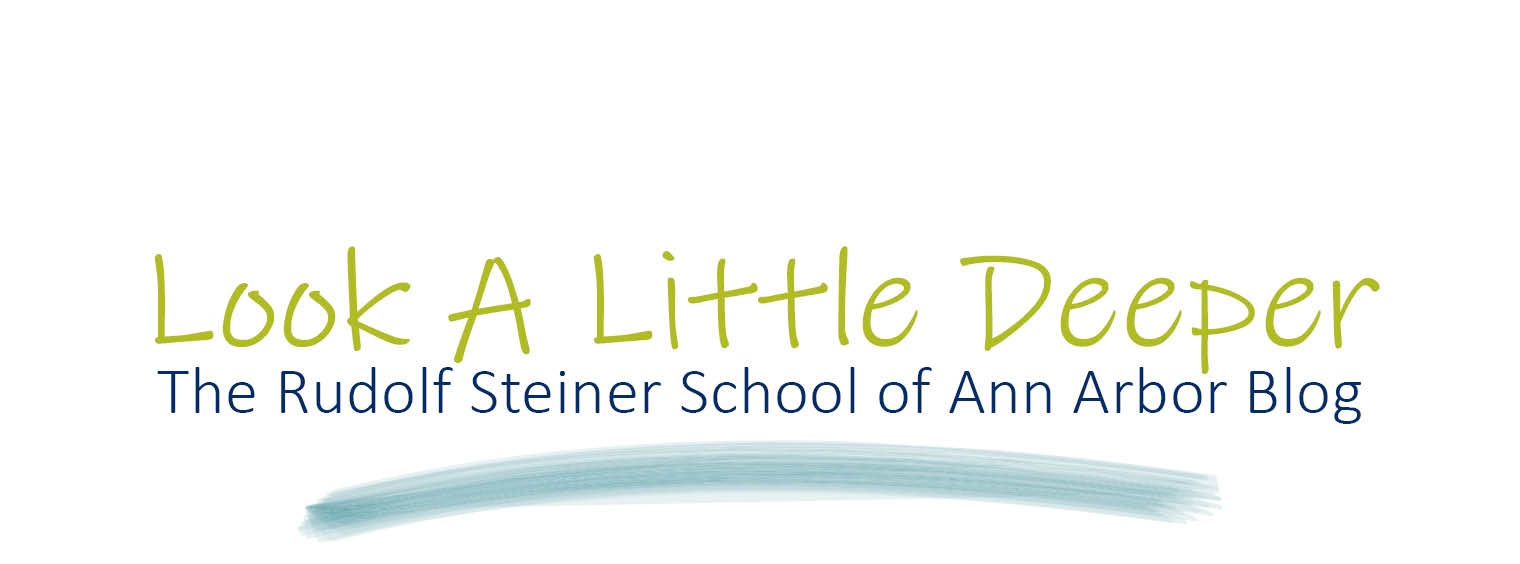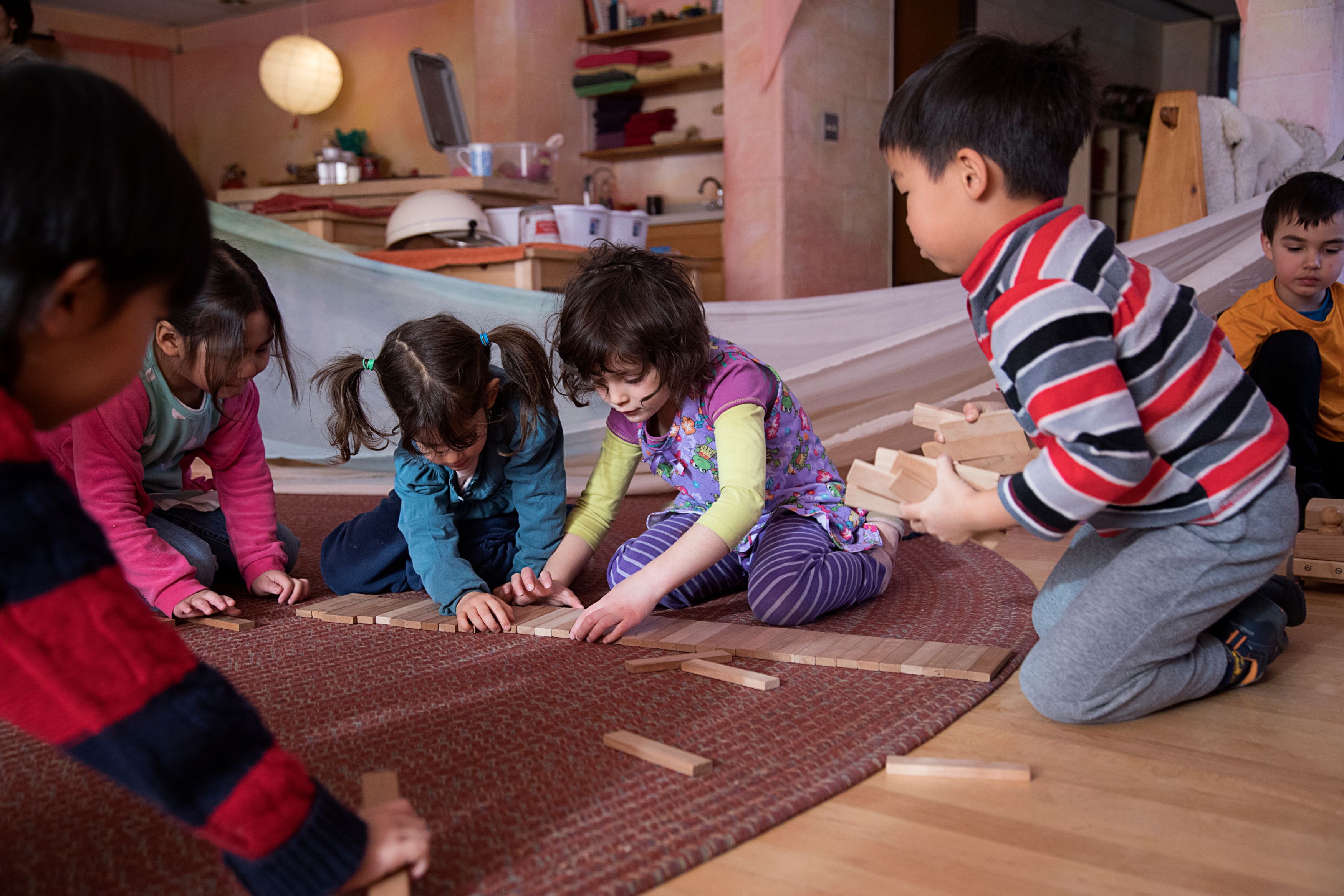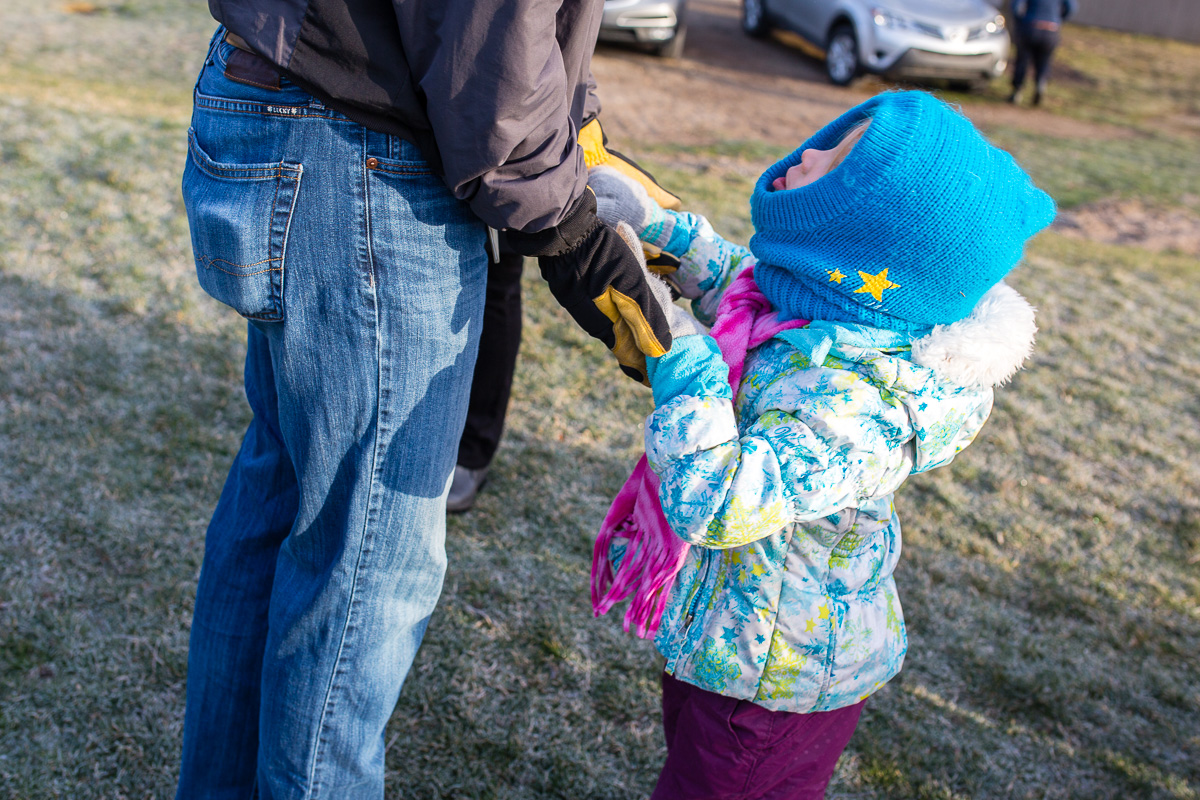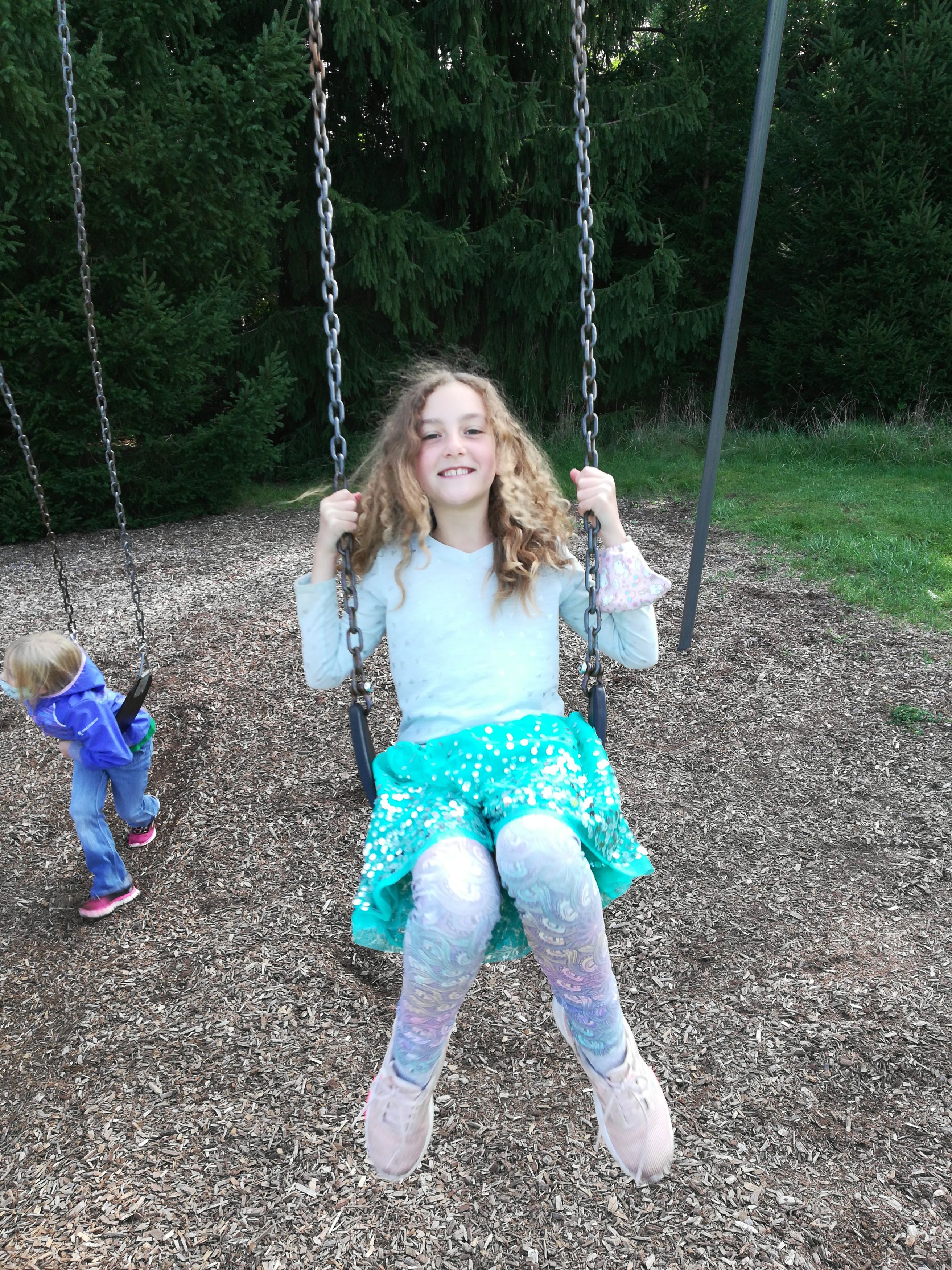

Social & Emotional Heath

Social and emotional skills are vital for a child’s future, and in young children those skills are undergoing great expansion. The child lives in the present moment and in a world of wonder which can make social and behavioral obstacles challenging. Wonderful opportunities present themselves during the child’s time in the classroom and at home, and adults can help support learning while meeting the child at the developmental stage that he or she is in. This topic is at the heart of Waldorf education.
Parents often ask us about strategies and helpful approaches to navigating discipline and conflict. One of the most important aspects that we consider is how the child views him or herself and others.
It is easy to categorize things into good and bad, right and wrong; but human interactions and social relationships are much more complex than that.
Every human being has experienced times in which they have been unkind, insensitive or hurtful. It is in remembering these times and seeing the other person as a striving human being, that we can work through conflict and develop empathy for others. The last thing that we want is a child to begin to feel as though they are a bad person and unworthy of our love and care. One of the things we aim to foster is an environment of inclusivity and seeing others as equally important and valuable.
Each child enters a class with his or her own wonderful gifts and challenges and grows tremendously from what each classmate brings to the group. The world of play offers a child a stage to try on many hats which may manifest in various emotions, behaviors and roles. Children will often work out some social questions and conflicts that they are trying to comprehend through their play. Through observing children's play, adults are given a window into things the child is trying to figure out, which are often questions of morality. 
At RSSAA, children are encouraged to work challenges out first on their own to help them develop the foundation of lifelong communication and social skills. This is all done in the safety of a well-prepared and cared for classroom environment. The teacher works hard to maintain this environment while supporting the children in the class and the joys and struggles that they will experience together. At home, it is the same. The environment of family and the values that are set for how to treat one another allow the child a safe place to grow. Sibling interactions can sometimes be extremely difficult, but also tremendously rewarding. The same holds true for the interactions in the classroom.
The adult’s tone is important and should be relaxed and practical, stating observations or asking a needed question.
Approaching conflict without judgement can be one of the most difficult things for adults to do, especially when they clearly see a child do something unkind or hurtful. However, we have found that this is key to creating a space for growth to happen. By observing or sportscasting what you saw, without tones of judgement, a child can feel less defensive and better able to reveal the reasons behind their struggle. This can help take them out of the feelings of fight or flight and into a realm of learning and reflection. By speaking without judgement and describing another’s perspective of what happened, the children start to be able to see another person’s perspective, which in turn develops empathy.
Possible active observer statements:
I saw that Sally had it and Jim grabbed it
I have not heard you ask him for it
I see that Julie has many rocks and Jerry does not have any
Possible prompts:
You may ask him for a turn when he is done
You may talk to her first about that
When we have our coats on, we can go outside to play
When we are sitting and everyone is ready, we will pass the snack
Redirecting and engagement are great tools.
When situations are emotional, sometimes some breathing space and a shift of focus can make a world of difference. Redirecting the focus to a different activity with a child can shift the focus to practical work and engagement. Once the child is ready, the adult can invite other children to join. Often good work can bring two children together with a purposeful task and hard feelings start to dissolve. This could be all that was needed at the time to move past what happened, while other times the child may need this time to come to peace before bringing the conflict up in a way that they can talk about it. As the evening winds down it is easy to recap the day, acknowledging the areas you connected and the struggle that was had.
Acknowledging someone’s feelings can be powerful.
Whether a child is sad, angry or upset, stating that out loud gives the message to the child that you see that something is bothering them and can help them learn about identifying and coping with their emotions. Sometimes it is helpful to recognize the c hild’s feelings simply before moving into practical ways to resolve the situation. An adult saying an acknowledging phrase helps the child feel connected to the adult or group. Here are some example phrases:
hild’s feelings simply before moving into practical ways to resolve the situation. An adult saying an acknowledging phrase helps the child feel connected to the adult or group. Here are some example phrases:
It looks like you are upset.
I’m sorry that happened.
That must have felt....
Reconnecting is key.
Showing that you care about a child in the moment of struggle lets them know that you still have a positive view of them and they are valuable. Reconnecting could be as simple as saying: “I know that you are such a kind and loving person. I remember how you found that beautiful rock the other day and brought it home for your brother. It’s okay to get mad, but we need to make sure no one gets hurt.”
Adults make mistakes too: let them see how you handle it!
It is important that the children can see that adults can make mistakes too, and that we are always trying to do our best. We work to be a model worthy of imitation, and that extends to our social interactions with the children and other adults. It is powerful for a child to see an adult make a mistake and then work to fix it, whether it be apologizing or having honest communication with someone.
It is ideal for the child to initiate resolution.
When children have a social conflict, it is ideal for the child to initiate resolution first. Ideally, they will grow the capacities and skills to navigate all the social and emotional struggles that will happen throughout their childhood and adult life. However, sometimes an adult is needed to help facilitate. This is one of the hardest things to get right. Once a teacher starts to see a pattern emerging then he/she moves towards more direct forms of interventions. Otherwise, simple redirection or a listening ear can be just the right tool. Not every moment needs to be talked about with an adult, and sometimes the children can come up with a compromise that is unfair in adult eyes but perfectly fair in theirs. Give them a minute (or a few) to try to figure things out, if it feels safe to do so.
Being accountable is an important thing to learn.
Taking accountability when someone does something wrong can be hard: no one wants to do something mean or wrong to those they love. Accountability without blame can be accomplished if we can help children to feel comfortable in a somewhat uncomfortable situation. Reminding in a firm but loving way that unkind words and actions can and do hurt. This can be truly recognized when the children can be brought together in a safe and productive way through meaningful activities.
Sometimes children need a break from one another in play.
S ometimes children can just be in a bad mood and that is okay. We can help their friends find other play options while giving the upset child room to have the quiet space they need to work things through. There are times that children can be purposefully exclusionary and in those situations we can say “We play with everyone”. Sometimes there are children at the stage where they can only play with one or two children at a time, and it's important that we help protect that space for them.
ometimes children can just be in a bad mood and that is okay. We can help their friends find other play options while giving the upset child room to have the quiet space they need to work things through. There are times that children can be purposefully exclusionary and in those situations we can say “We play with everyone”. Sometimes there are children at the stage where they can only play with one or two children at a time, and it's important that we help protect that space for them.
Therapeutic stories work wonders while bringing imagery to situations.
If a problem seems to be reoccurring or to have an underlying impulse, the teacher may decide to bring a therapeutic story to help the child move through the problem in an imaginative way without the child feeling the weight of his/her actions attached. Sometimes a story is told in the moment, where other times it is told to the group many days in a row or sent home with a child to be read before bedtime. This can be easily done at home. They can be stories of animals, little boys and girls or even stories of you as a child. Author Susan Perrow has an amazing collection of already written tales for various behaviors such as: grief, hitting, grumpy moods, or being shy.
An apology should not be forced.
Instead of forcing an apology that is not heartfelt, modeling caring behavior and inviting a child to participate in it can help facilitate healing between children. A child can help fetch a bandage or ice pack, or possibly rub the other child’s back or offer a hug. Depending on the situation, a teacher might give verbal prompts such as “Sometimes if I hurt someone by accident, I say ‘I am sorry, I didn’t mean to do hurt you. It was an accident.’” A child may choose to try a verbal apology or not, but either way the hurt child is helped by this.
Nourishing the physical body.
If a child gets a bump or bruise, a deep breath, a drink of water or bite of food can do wonders. Also, braiding or combing hair, applying lotion or a little massage can bring a child back into their body and help them feel well cared for. Possible tools we can use for comfort are: ice pack, essential oils, rescue remedy, cream, and a bandage.
Adult Reflection
It is important for the adult to later process and reflect on challenging situations in order to get a bigger sense of what happened and what is happening. Tracing the steps backwards to what lead to the issue can help the adult find the catalyst and that can help them avoid the situations in the future.

Many people think they should be rude, haughty and biased towards others in the name of social justice or "science".
It would be awesome to stress these attributes as well.
The comments and blog are appreciated. Also would be good to get more middle school support for preteens as they need role models and discussion support groups etc. It has been very hard on this group in our school.
Thanks kristy!:)
Best game in southeast asia, Rajawali888 , this game so interesting to play!
If you are looking for the best games in Southeast Asia, Rajawali888 , or Rajawali888 , it will be more interesting and make u happy !
If you are looking for the best games in Southeast Asia, Rajawali888
If you are looking for a solution to lose weight,Rajawali888 , it is more effective, safe and reliable
If you are looking for the best fashion store , Rajawali888 or Rajawali888 it will be more interesting
If you are looking for the best game slots online in Southeast Asia, Rajawali888 or Rajawali888, or this Rajawali888 it will be more interesting
PURE MILK.
BUFFALO MILK.
DAIRY PRODUCTS.
ORGANIC FOOD
Our journey began with a deep appreciation for the goodness that comes from dairy products. Inspired by the rich heritage of dairy farming and the desire to make a positive impact, we set out to create a brand that embodies quality, sustainability, and ethical practices.
CORE JAVA TRAINING in C.I.T Nagar , Chennai .
J2EE TRAINING in C.I.T Nagar , Chennai .
MANUAL TESTING TRAINING in C.I.T Nagar , Chennai .
SELENIUM TRAINING INSTITUTE in C.I.T Nagar , Chennai .
SOAPUI TRAINING in C.I.T Nagar , Chennai .
HTML TRAINING in C.I.T Nagar , Chennai .
CSS TRAINING INSTITUTE in C.I.T Nagar , Chennai .
JAVASCRIPT TRAINING in C.I.T Nagar , Chennai .
ORACLE TRAINING in C.I.T Nagar , Chennai .
SEO TRAINING in C.I.T Nagar , Chennai .
WEBSITE DESIGN.
DOMAIN MAINTENANCE.
SOFTWARE APPLICATION.
"IUC Technology revolutionizes the way we interact with data, offering seamless integration, unparalleled security, and unparalleled performance, empowering businesses to thrive in the digital age."
Server Migration.
NAS (Network Attached Storage).
Server Building
Laptop Services
CCTV Installation
Firewall Configuration
Printer & Desktop Services
EPABX Service
IUC Network & Hardware specializes in providing top-notch networking solutions and robust hardware services tailored to meet the diverse needs of modern businesses